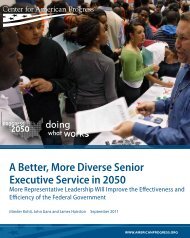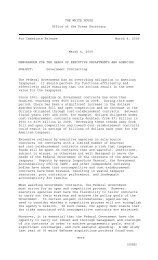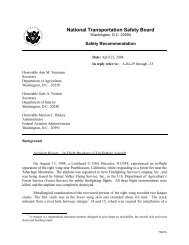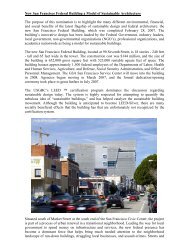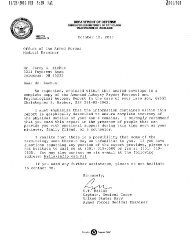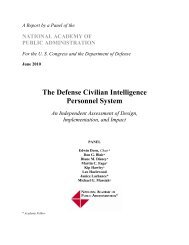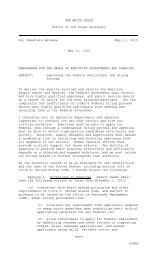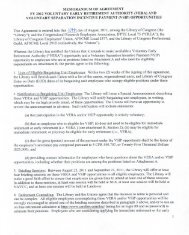Accenture's fifth annual global e-government study
Accenture's fifth annual global e-government study
Accenture's fifth annual global e-government study
You also want an ePaper? Increase the reach of your titles
YUMPU automatically turns print PDFs into web optimized ePapers that Google loves.
The citizens’ view<br />
Most of <strong>government</strong>s’ efforts to improve their<br />
online programs are only as useful as the extent<br />
to which people actually use the services. The question<br />
is: What do citizens think of the online services<br />
their <strong>government</strong>s offer them This year we have<br />
included in our eGovernment Leadership report the<br />
results of our survey of citizens’ attitudes and use<br />
of eGovernment in 12 different countries: Australia,<br />
Belgium, Canada, France, Germany, Ireland, Italy,<br />
Singapore, Spain, Sweden, the United Kingdom and<br />
the United States. 2<br />
The research was designed to reveal:<br />
• Current usage of eGovernment.<br />
• Triggers and barriers to eGovernment use in<br />
each country.<br />
• Current attitudes toward eGovernment in<br />
each country.<br />
• Future priorities for the development of<br />
eGovernment.<br />
(See the Appendix on page 106 for a full description<br />
of the citizen survey methodology.)<br />
In terms of their cultures and their eGovernment<br />
development, these countries are quite different.<br />
Interestingly, however, there was quite uniform<br />
agreement on many trends. In terms of their attitudes,<br />
perceptions, needs and desires, people speak<br />
with the same voice when it comes to eGovernment.<br />
Overall, we found that users are generally positive<br />
about eGovernment, but that countries across the<br />
board need to do more work to raise awareness<br />
and drive up usage of existing services. We found<br />
that citizens who are using eGovernment today<br />
overwhelmingly do so for informational purposes<br />
rather than transactional ones; that the barriers to<br />
greater take-up tend to be related to ease of use;<br />
and that the triggers for use are related to increased<br />
convenience for simple transactional services.<br />
Our findings within each of the four main areas of<br />
the research—current usage, triggers and barriers,<br />
current attitudes and future priorities—are explained<br />
in greater depth in the sections that follow.<br />
2<br />
The survey respondents included only regular Internet users.<br />
23




